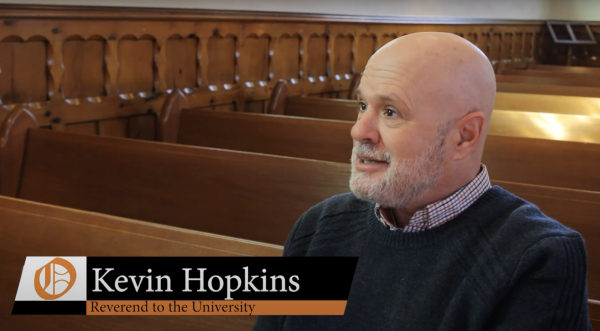Grant completes economics textbook
What do you do when you’re a professor who can’t seem to find the right textbook for your students? Write your own, of course.
That’s just what Alan Grant, professor of business and economics, did upon realizing he and his colleagues use a different set of analytical tools than most existing textbooks.
“This book is a bit more light-hearted than other texts, and it really de-emphasizes the use of graphs and facts and figures,” Grant said. “I think that makes it more appealing than other texts in its segment. (My favorite part is) the set of games and simulations that accompanies the text … Learning economics doesn’t have to be boring, and I think these features help ensure that it won’t be.”
Grant’s textbook, Economic Analysis of Social Issues, is designed for students who might only take one economics course. From global warming to the shortage of organ donors, the textbook demonstrates how a variety of social problems have similar economic origins.
“Each topic in the book includes a classroom simulation students can participate in that demonstrates why those problems arise,” Grant said.
Grant’s limited background in real-world business led him to become a self-proclaimed “classroom economist” because he has spent most of his adult years on one side of the podium or the other, rather than in the actual field.
Junior Andrew Poindexter has taken several courses through Grant. He believes his teaching methods are easy to comprehend.
“Every single class I have taken with him has been rewarding and I think he can explain complex theories in ways that anyone can understand,” Poindexter said.
Poindexter considers Grant one of the best professors he has had at Baker because of his engaging lectures and ability to bring subjects to life with real-world examples. In the textbook, the simulations are meant to be educational tools that provide a fun way for students and instructors to learn the material.
Economic Analysis of Social Issues was originally written for the Baker University general education course EC111: Economic Analysis of Social Issues. Grant has been using drafts of the textbook with his students since 2011, which has led him to make edits over time.
Grant thinks there is potential for other universities to use his book. In fact, a professor at Eastern Kentucky is using it this spring to teach an upper-level public policy course.
“Of course, I wouldn’t be much of an economist if I didn’t hope this book would make a dime or two,” Grant said.
Grant went through three major drafts and two lighter editing rounds of his book before he had a finished product.
“The first draft was a lot of fun,” Grant said. “But it got hard after that.”
His drafts were sent to a panel of reviewers who pointed out flaws, omissions and other possible approaches.
“It’s hard not to feel a little beat up, even by kind and constructive criticism, after three or four more drafts,” Grant said.
Grant was glad when the book was shipped to the printer and he was able to stop writing.
Now that all the heavy lifting is done on his textbook, he plans on writing just for fun. He is currently working on a pop-econ book, The Economics of Seinfeld.







